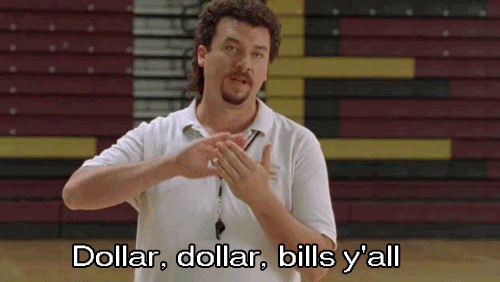Giving thanks to FCC Chairman Ajit Pai

We had too many choices anyways
Paradox of choice — no more!
Wow, so get this, now when you want to watch video content on the Internet, some of it is going to play perfectly well and other video content will buffer, stall, and just be bad quality. Now instead of having unlimited choices for content to consume, you will have a simpler more focused experience. And less choices is good right, I mean this super smart TED Talks speaker says having too many choices is bad for us.
Someone has to be choosing though right?
Look if having too many choices is bad, then you can’t imagine how hard it is for someone to do the choosing for you. If you don’t know what you want to watch, how can they know what you want to watch? I mean they don’t even know you or what you like, so that would require some sort of next level smarts like AI or machine learning which is all too complicated for your cable and/or internet provider to figure out. I mean have you ever called in and tried to resolve an outage, they can’t figure that out most of the time, so how can you reasonably expect them to curate the limitless content that the Internet makes available.

Lowered expectations
Great, now that your expectations are sufficiently lowered, we need to figure out a way that will work for those internet providers to determine what content you should be able to view and what content should definitely be slowed down to be unusable. It has to be simple, not require too much work on their end, and if it could actually make them more money, that would be good too……

Economics to the rescue
Well if content is valuable, then that means people must pay for it. And if they are paying someone for the content, what if we charge the company receiving that payment? That way we let economics solve the problem without all of that pesky machine learning, killer AI stuff. Dollars are simple, and internet providers can even set minimum thresholds so only companies who can pay >$1m/yr are dealt with.
If payment ≥ $1m
… then content = awesome
This has to be the easiest solution right? I mean if a company can pay a lot of money, then their content must be awesome and so you as an Internet user are assured to see only the best of the best things. All of those confusing decisions are eliminated as there are far fewer companies able to pay the new “content selection” fees. Plus everyone can go back to how it used to be when there were only 4 TV channels and everyone had to watch the same things.
With all that stress over decisions gone, we can kick back and watch some of this incredible content!
Not the future I want
I don’t know about you, but this seems a little wrong to me. The Internet will now be curated based on dollars spent by big business? Seems like a disaster and antithetical to what the Internet is currently delivering. It has created a place to connect people with similar interests no matter the size or popularity of that interest. There are communities for any group of common interests you could imagine, even Rubber Duck Collectors (which is kind of awesome).
But if content accessibility is dictated by who can pay the most money, then all of these smaller interest groups are harmed. It’s a step back towards where we were before the Internet existed into a more isolated and homogenized world. We will all be connected by super fast pipes to big company content, but unable to connect with those most closely aligned to our thoughts and interests.
These micro-communities are the real heart of the Internet. We had access to mass market content before, but the “new” thing the Internet did was give us access to each other. To see new things, meet new people, consider new ideas. And this expansion of “new” can’t happen when access is dictated by dollars. Because every new thing starts as community of one. One person decides that they want to connect with other people who share their love of collecting rubber ducks and so they set up a website. Then a second person finds them, and so on….
It is the ideas themselves that are the value, not the money spent on them. If an idea or group resonates, then it picks up momentum, if not maybe it evolves or dies off. But these new ideas can only flourish when people have the ability to connect with them and being able to limit that access means that someone else can dictate which ideas succeed and which ones fail…..
America was built on a foundation of recognizing that allowing ideas the chance to be shared and judged by others is how we make progress as humanity. Net neutrality has been a great way to encourage this progress. Let’s not take that away
